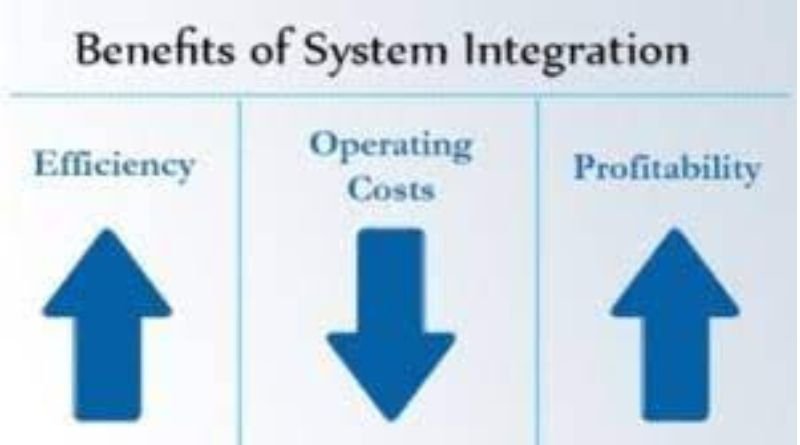When it comes to modern business operations, there are few things more important than system integration. System integration is the process of combining two or more applications and systems into a single cohesive solution that can offer improved performance and cost savings. The benefits of system integration are often overlooked, but they are extensive and can be surprisingly beneficial for businesses of all sizes. In this blog post, we’ll explore the surprising benefits of system integration and how it can help your business succeed.
Improved Customer Service

System integration offers businesses of all sizes a unique opportunity to improve their customer service in multiple ways. By integrating their different systems and processes, organizations can easily provide customers with a more cohesive, unified experience. This unified experience can be achieved in many different ways, from having a single platform for customer service requests to having access to all customer data and information within one system.
Integrating systems also enables organizations to automate customer service tasks such as appointment scheduling, support inquiries, and customer surveys. This allows them to respond to customer inquiries faster and more effectively, while also reducing the need for manual effort and providing more accurate responses. Additionally, it helps create a better understanding of customers’ needs, allowing organizations to tailor their offerings to better meet those needs.
Furthermore, integrating systems creates opportunities for companies to leverage customer feedback to improve their services. Customer feedback can be used to identify potential areas for improvement and create actionable insights for improving service delivery. This feedback is invaluable for providing customers with better experiences, leading to increased satisfaction and customer loyalty.
Increased Efficiency
System integration is an incredibly useful tool for businesses that want to increase their efficiency. By unifying multiple systems within an organization, tasks that were once manual and time-consuming can be automated. This automation means that tasks are completed faster and more accurately, saving businesses time and money.
System integration also has the added benefit of reducing operational costs by providing a single source of truth. By having all data stored in one location, access is quick and secure. This can also help to eliminate redundant processes, saving additional time and money.
Finally, system integration can also help streamline communication between departments within an organization. By having access to the same information, departments are better able to coordinate their efforts, leading to better collaboration and increased efficiency.
Enhanced Security
When it comes to system integration, one of the greatest benefits is improved security. By integrating all of your systems into a single platform, you can have better control over who has access to data and information. In addition, integrating systems allows for more robust authentication protocols to protect against potential unauthorized access.
Integration also enables businesses to ensure that their systems remain up-to-date with the latest security patches and upgrades. This helps to reduce the risk of malicious attacks, keeping your business and its customers safe. Furthermore, integrated systems are better able to monitor activity and detect suspicious behavior, allowing you to take quick action if needed.
The combination of improved authentication protocols and enhanced monitoring capabilities makes system integration a must-have for any organization that wishes to remain secure in today’s digital environment. With integrated systems, businesses can rest assured knowing their data is secure and that they are better protected against potential threats.
Improved Business Continuity
System integration is a powerful tool that can help businesses to improve their business continuity. By integrating all of the systems within an organization, companies are better equipped to handle unexpected changes and risks.
For instance, integrating multiple systems such as customer relationship management, enterprise resource planning, and accounting software into one platform allows all of these systems to communicate in real time, which helps to ensure that data is always up-to-date and accurate. This eliminates the need for redundant processes and manual data entry, which saves time and prevents mistakes.
Integrated systems also make it easier for companies to quickly respond to unexpected events. If a system goes down, integrated systems can automatically redirect processes to other systems or resources, ensuring that business operations continue without disruption. Additionally, integrating multiple systems also makes it easier for companies to establish backups and failover processes that can further reduce downtime and ensure business continuity in the event of an unexpected interruption.
Overall, system integration can provide businesses with greater resilience and help them quickly recover from unexpected events. By utilizing this technology, businesses can improve their overall business continuity and ensure that they are better equipped to handle any situation that may arise.
Related: HRMS For Startups: How They Save Time For Employees








